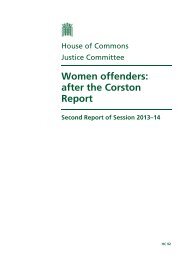Listen Up - Social Welfare Portal
Listen Up - Social Welfare Portal
Listen Up - Social Welfare Portal
You also want an ePaper? Increase the reach of your titles
YUMPU automatically turns print PDFs into web optimized ePapers that Google loves.
listenup!18 | Chapter 2staff working in Child and Adolescent Mental HealthServices (CAMHS) and colleges. All eight organisationswork as part of a wider network of services for youngpeople which includes CAMHS and other statutoryservices. The partner sites made clear that establishingand maintaining good working relationships withall other agencies is vital for improving services andworking towards the provision of seamless support foryoung people.There are a number of core principles in deliveringservices to young people that all eight partner sitesagreed upon, including having an overall approachwhich is ‘person-centred’. This means putting theindividual young person at the core of what servicesdo, and looking at their needs in a holistic way. Thereport looks at how the eight sites achieved thisapproach and sets out the core principles. It is hopedthat this will be of use to those commissioning andfunding services for young people, as well as thoseworking with young people or wishing to set uporganisations for young people.Fundamental to taking a young-person-centredapproach is engaging and involving young people inservice design and improvements. The report showshow the eight organisations achieved this, and whatit means to young people.MethodologyThis project is based on a number of sources ofinformation, as outlined in the rest of this section.1. Information gathered during Youth Crisis IYouth Crisis I consisted of an in-depth consultationwith almost 200 young people to find out what theywanted from services and, the ‘wish list’ they drew upis included as Appendix 1.2. Focus groups and interviews with youngpeople in the project sitesThe Foundation drew up questions to ask youngpeople at the eight partner sites. The questions weredeveloped in consultation with both a young personservice user consultant at the Foundation, and withyoung people at the sites, to make sure the languageused was clear and sensitive. Staff at the sites thenselected young people (aged 16 to 25) who werecurrently using the service, or who had done in thepast, to take part in the survey. The young peoplewere asked if they wanted to take part, and, if so,when they would be available and whether theywould prefer to be interviewed one-to-one, or aspart of a group. Based on this information, staff ateach site advised the Foundation on how to conductthe survey; focus groups were held at six of the sites,and face-to-face interviews at two.EthicsWhen the survey was undertaken, each project sitealready had its own ethical guidelines in place forgroup and one-to-one work with young people,and each site worked to its own guidelines for thesurvey, to ensure a consistent approach. However,the ethical guidelines were very similar in eachsite, and were broadly in line with the Foundation’sinternal standards.Each young person taking part was given aparticipant information sheet which stated thepurpose of the study and what they would be doingas part of the survey, and was informed about theanonymity and confidentiality of any data collected,meeting data protection requirements. All theparticipants provided informed written consentto take part. A member of staff was on hand toprovide support to manage any difficult emotionsfor any participant who had been affected by thefocus group or interview. Participants were free towithdraw at any time.The focus group/interview processIn total, 32 young people were interviewed, either aspart of focus groups or one-to-one. Each focus groupor interview lasted between 45 and 90 minutes.
















